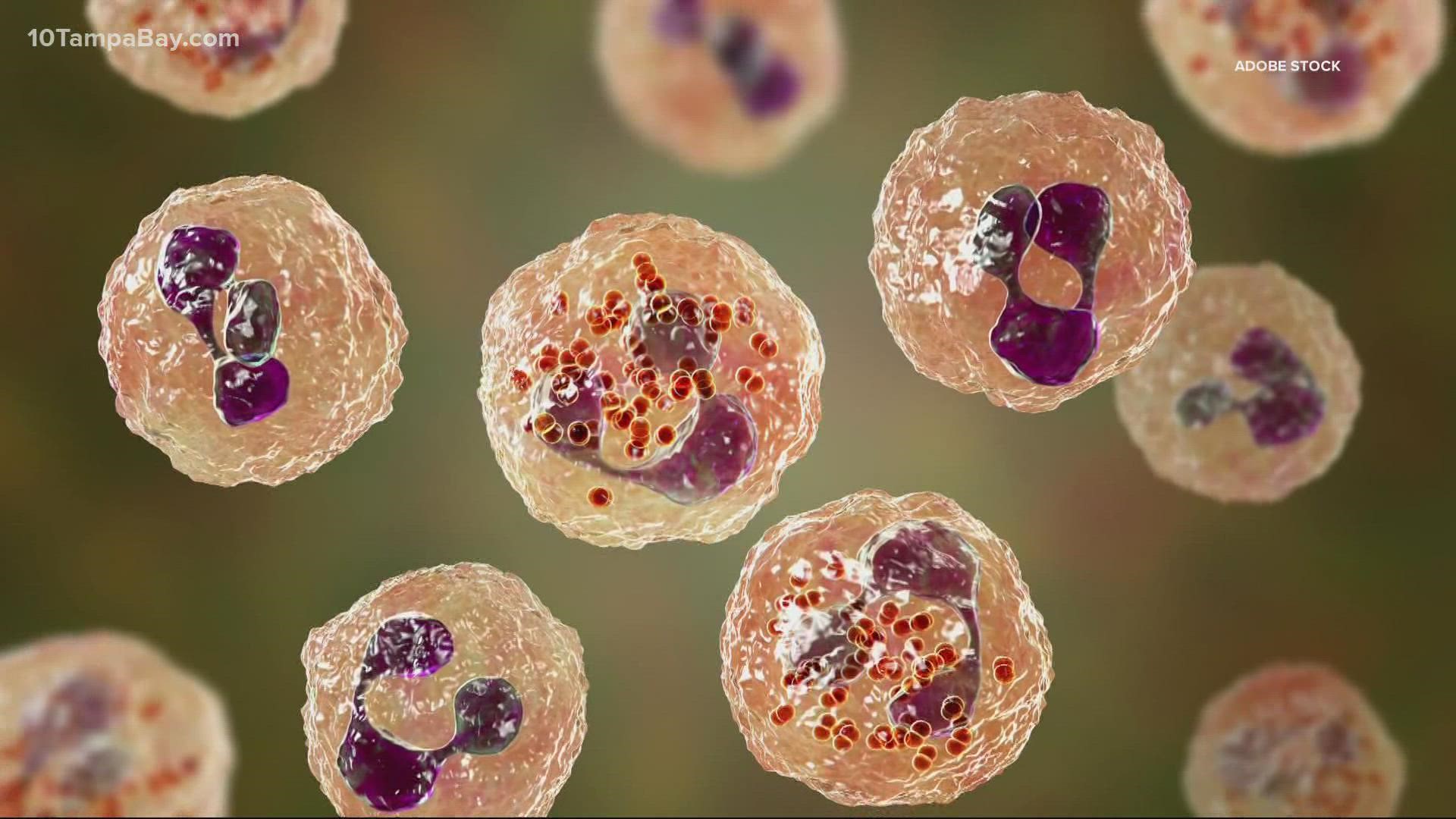HILLSBOROUGH COUNTY, Fla. — Florida is facing a large outbreak of meningococcal disease, according to the Centers for Disease Control and Prevention.
Last week, the Florida Department of Health shared in a news release that the total number of cases identified so far this year has surpassed the five-year average number of cases.
As the disease continues to spread, you may be wondering which groups are at risk and what steps you can take to protect yourself.
Here's what you need to know about Florida's meningococcal disease outbreak.
What is the disease?
The CDC defines meningococcal disease as "any illness caused by bacteria called Neisseria meningitidis."
The two most common types of meningococcal illness are infections of the lining of the brain and spinal cord, known as meningitis, and infections of the bloodstream, the agency adds.
These illnesses are often severe and can be deadly.
“With meningitis bacterial meningitis in particular if it’s untreated about 70% of people who get it will die from it,” USF Assistant Professor Dr. Jill Roberts explained.
Who does it affect?
According to the CDC, this outbreak is primarily among gay, bisexual and other men who have sex with men as well as those living with HIV.
There have also been cases reported among multiple Florida college students, though there CDC says there is no evidence to suggest that the two outbreaks are related.
"We actually worry around the universities because the university can be a pretty good environment for meningitis to spread," Dr. Roberts said.
How does it spread?
Dr. Jill Roberts, who specializes in molecular epidemiology says meningitis specifically spreads through close or lengthy contact.
Meningococcal disease is caused by bacteria, but it's not transmitted through casual contact like breathing air when somebody is standing nearby. Its transmission involves closer and extended contact like kissing or sharing drinks while hanging out.
Is the meningococcal disease in the Tampa Bay area?
The Florida Department of Health's reportable diseases frequency report shows so far this year, there has been one confirmed report of meningococcal disease in Hillsborough County and one case reported in Polk County. Over in Orange County, there have been six confirmed cases and several others around the state of Florida.
What are the symptoms?
The most common symptoms include fever, headache and stiff neck while additional symptoms can include nausea, vomiting, light sensitivity and confusion, according to the CDC.
What can I do to protect myself?
"The number one prevention is clearly vaccination," Dr. Berger, a Tampa-based board-certified pediatrician, told 10 Tampa Bay.
The CDC is recommending all gay, bisexual and other men who have sex with men in Florida get one dose of a MenACWY vaccine, which you can learn more about by clicking here. People with HIV should talk to their doctors about a two-dose series of the vaccine.
The DOH is encouraging college and university students, immunocompromised individuals and those who received their MenACWY vaccine more than 5 years ago to get vaccinated during this outbreak.

